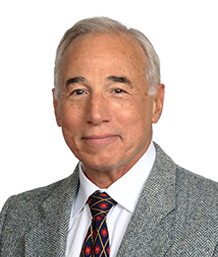Why My Patients Aren't Having Heart Attacks

It has become clear to me, after more than 35 years of medical practice, that the traditional approach to cardiovascular disease is missing the boat. Just look at these dismal statistics:
- Heart disease has been the No. 1 cause of death in this country since 1900.
- Somebody has a heart attack every 40 seconds and dies from one every minute.
- Somebody has a stroke every 40 seconds and dies from one nearly every four minutes.
If you’re at high risk for heart disease, at least you can take comfort in knowing that today’s cardiology teams are fantastic at fixing problems. They can put drug-eluting stents into narrowed arteries, replace damaged arteries with healthy ones, keep hearts beating with implanted pumps and ultimately perform heart transplants.
However, when it comes to preventing cardiovascular disease – which is possible to a large extent – the news isn’t so good. Why aren’t far fewer people having heart attacks and strokes?
For one, most people don’t know enough about heart disease. A recent MDVIP survey of more than 1,000 adults found that:
- 64 percent think they know their level of heart disease risk.
- 53 percent feel they are doing everything they can to prevent it.
- Only 42 percent have asked their primary care doctors for advice on prevention or management.
Another reason cardiovascular events remain common is that we focus too much on improving levels of low-density lipoprotein (LDL), the so-called “bad” cholesterol – and not enough on other important factors, like reducing inflammation, sugar and stress. According to the MDVIP survey, more than half the respondents thought that “if you have heart disease, you should eat as little fat as possible.” (That’s not true, of course: Healthy fats like those in oily fish, avocados, nuts and olive oil are good for your heart.)
Plus, most of those surveyed didn’t know that inflammation, not just the buildup of plaque in the arteries, triggers most heart attacks and strokes. In fact, just 44 percent of those surveyed felt very or somewhat knowledgeable about the role of inflammation in heart disease.
In my practice in Maryland, however, heart attacks are rare — the last one was more than five years ago. It’s not that my patients are any smarter or healthier or genetically luckier than others. It’s that, as an MDVIP-affiliated physician, I provide tests that look for signs of heart disease before an event occurs, and I have plenty of time to talk about various prevention strategies.
Most of the approaches don’t come as a surprise. You can’t grow up in America and not know what’s supposed to be good for you. But life gets in the way, so most of us don’t have significant incentive to make the right choices. What the tests I use in my practice do – particularly when they find plaque in the artery wall – is more accurately identify patients at risk for heart attack and stroke and motivate people to make those healthy choices. The ones I recommend can reduce the risk of a cardiovascular event by 70-80 percent.
Here’s what I recommend to my patients in my practice (and it’s working!):
- Get your waist circumference down below 40 inches if you’re a man, 35 inches if you’re a woman.
- Exercise for 30 minutes a day, five days a week.
- Aim for six to eight hours of sleep a night.
- Work on stress reduction. An app for mindfulness meditation is a good first step.
- Take a baby aspirin if you already have plaque.
- Consider an omega-3 supplement. The best studies to date suggest it has a clear heart benefit.
- Don’t smoke.
- Avoid sugars, processed foods and trans fats.
While not all heart disease-related events are preventable (including heart attacks), we can prevent a whole lot more than we’re stopping right now. It takes time, testing and physicians and patients working together, focused on overcoming their heart disease risks. If we can do a little more of that, heart disease won’t be the No. 1 cause of death for much longer.
